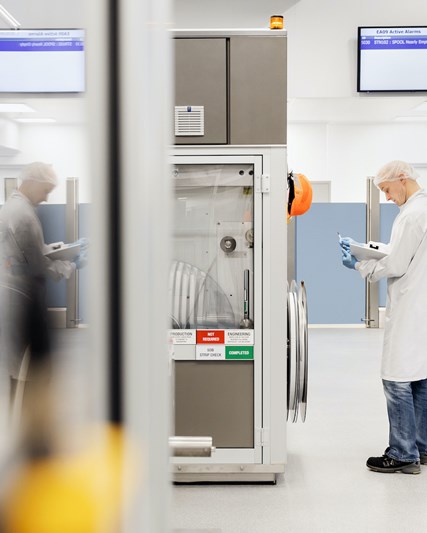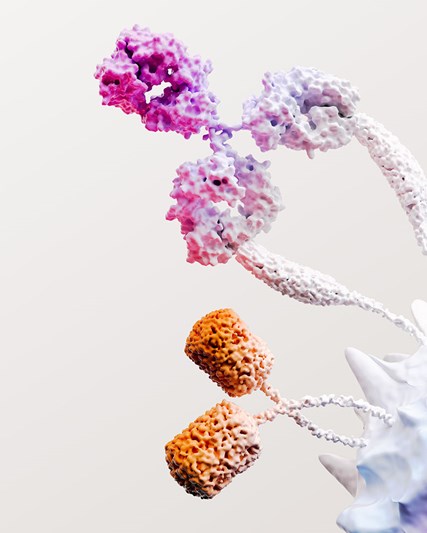Issued: London, UK
For media and investors only
GSK and Cambridge University announce new five-year collaboration in kidney and respiratory disease
- The Cambridge-GSK Translational Immunology Collaboration (CG-TIC) brings together GSK’s expertise in the science of the immune system, AI and clinical development with Cambridge’s complementary expertise
- GSK is investing more than £50 million in the CG-TIC to further accelerate research and development in kidney and respiratory diseases
GSK plc (LSE/NYSE: GSK) announced it is investing £50 million into a major new five-year collaboration with the University of Cambridge and Cambridge University Hospitals, to accelerate research and development into immune-related diseases. The collaboration, which will be called the Cambridge-GSK Translational Immunology Collaboration (CG-TIC), builds on GSK and Cambridge University’s existing scientific relationship and will aim to find ways to more precisely treat immune-related disease with existing therapies, as well as develop new ones more rapidly. It will do this by enhancing our existing focus on understanding mechanisms of disease onset, disease progression, patient response to therapies and developing translational biomarkers.
The collaboration will focus on two disease areas: respiratory and kidney. Kidney disease is estimated to affect 850 million people (roughly 10% of the world’s population) (International Society of Nephrology) and chronic respiratory diseases around 545 million people (The Lancet). Chronic kidney disease often leads to end-state disease, and current treatments like dialysis or transplant have significant negative impact on quality of life for patients.
Tony Wood, Chief Scientific Officer, GSK, said: “Collaboration is at the heart of scientific progress and is fundamental to how we do R&D at GSK. We’re excited to build on our existing work with the University of Cambridge to further this world-leading scientific and technological capability in the UK. By bringing together Cambridge’s expertise and our own internal capabilities, including understanding of the immune system and the use of AI to accelerate drug development, we have an opportunity to help patients struggling with complex disease.”
CG-TIC takes a ‘translational’ approach, using AI and machine learning with patients at its core. Bringing together patient data and AI/ML, the Cambridge-GSK research team will focus on hard-to-treat diseases which affect the kidneys and lung and its findings will feed into the discovery and development of transformational therapies of the future.
Professor Deborah Prentice, Vice-Chancellor of the University of Cambridge, said: “The University sits at the heart of Europe’s leading life sciences cluster, where excellent research and the NHS’s clinical resources combine with the talent generated by the many innovative bioscience companies that call Cambridge home. Through this very important collaboration with GSK, Cambridge will be able to drive economic growth for the UK while improving the health of people in this country and around the world.”
The aim of CG-TIC is to improve outcomes for patients and Cambridge provides a unique environment in which to involve them, with Cambridge University Hospitals playing a pivotal role in the collaboration and Royal Papworth Hospital, the UK’s leading heart and lung hospital, a likely future partner. Home to the hospitals and to much of the collaboration’s research activity, the Cambridge Biomedical Campus provides a unique environment where academia, industry and healthcare can come together and where human translational research is supported by the National Institute for Health and Care Research (NIHR) Cambridge Biomedical Research Centre.
Secretary of State for Science, Innovation and Technology Peter Kyle said: "The UK's life sciences industry is thriving, driving innovation and improving lives. This collaboration between GSK and the University of Cambridge demonstrates our country's leading research and development capabilities. By focusing on cutting-edge research and harnessing the power of AI, this has the potential to advance the treatment of immune-related diseases, which could benefit patients both here in the UK and internationally. It's a clear example of how collaboration between industry, academia, and healthcare can deliver tangible results and strengthen the UK's position in healthcare innovation."
CG-TIC will be co-led by Nicolas Wisniacki, VP, Clinical Research Head, GSK, and David Thomas, Professor of Renal Medicine and principal investigator at the Cambridge Institute for Therapeutic Immunology and Infectious Diseases, Cambridge.
About GSK
GSK is a global biopharma company with a purpose to unite science, technology, and talent to get ahead of disease together. Find out more at gsk.com.
Cautionary statement regarding forward-looking statements
GSK cautions investors that any forward-looking statements or projections made by GSK, including those made in this announcement, are subject to risks and uncertainties that may cause actual results to differ materially from those projected. Such factors include, but are not limited to, those described under Item 3.D “Risk factors” in GSK’s Annual Report on Form 20-F for 2023, and GSK’s Q2 Results for 2024.



